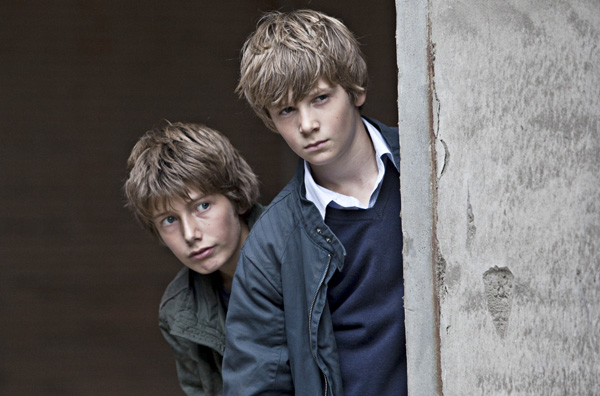|
Reviews of Recent Independent, Foreign, & Documentary Films in Theaters and DVD/Home Video

IN A BETTER WORLD Has Danish director Susanne Bier sold her soul to Hollywood? She made a name for herself back home with intimate dramas of messy private lives played out within rigidly well-built plotlines that propelled the resolution forward as much as the characters did. Two years ago, she made the American-backed, Halle Berry-starrer Things We Lost in the Fire, which received mostly decent reviews. (She did not direct the American remake of perhaps her best known film, Brothers.) Now, with her ever-moving camera, she’s back on her home turf by way of war-torn Africa. In the pre-Oscars pontificating, the New York Times’s Carpetbagger blog accurately pegged In a Better World as this year’s foreign-language film victor, as did many. The reason: it was the most “American” of the nominees, more Crash than an art-house breakthrough. (It’s worlds apart from fellow nominee Dogtooth.) True, there’s a transparent clarity in the theme (revenge vs. forgiveness) as well as in the characters’ motivations that can also be found in other Oscar-friendly fodder. (The Danish title translates more bluntly as “Vengeance.”) But the longwinded answer to the question above is no—her newest film’s precisely told much in the way of her other films, and it would be unfair to imply that though its narrative is mainstream, it’s low in nuance. The screenplay throws in more twists than its generic title would imply, though the audience will know how it ends about 15 minutes before the orderly conclusion. The film first begins in a nameless African country (Sudan?), where a doctor, Anton (Mikael Persbrandt), operates in a makeshift refugee camp. Many of his patients are pregnant women who have been mutilated by a marauding militia. When he returns to Denmark after his work with the NGO, his wife gently brushes off his offer to reconcile—she can forgive, but she can’t forget his affair. They remain separated (and in what homes!). Both, though, are on the same page when it comes to disciplining their oldest son, scrawny 10-year-old Elias (Markus Rygaard), when he’s involved in a violent incident at school. He’s been bullied by a pack of kids for being different: he has buck teeth and he’s a foreigner. Apparently, Denmark may be the only country where the Swedish are looked down upon. Elias’s only friend is the new kid in school, Christian (William Johnk Nielsen), who has just moved back from London after his mother’s death from cancer. Tight-lipped and well-groomed, he has the eerie, calm assurance of one of The Children of the Damned. And as Elias’s sole friend and de facto protector, Christian’s influence overpowers Anton’s. Three threats come into play, creating some of the film’s suspense: a hidden knife, a pipe bomb, and a free fall. What’s makes the storyline more unnerving, however, is that the viewer never knows how far the steely Christian will push his notion of justice, which is more an eye for an eye than turning the other cheek, which Elias’s father advocates, and to great pains too, both at home and in Africa. To be clear, this fight club is not just for boys. In the script’s most insinuating suggestion, women are not sidelined as peacemakers. If anything, how they wield words as weapons has as much impact as a whack to the head, and is more wounding. Though she’s never seen, Christian’s dying mother leaves a curse on her estranged husband, making it difficult for him to reconcile with his son, and guess who Christian sides with? However, in
one important aspect, World orbits above Bier’s earlier films.
Considering its subject matter, it borders on the opulent, compared to
her grainy 2002 film Open Hearts, which was darkly lit in the
then-hot Dogme 95 mode. That film already seems like a period piece.
Even the African refugee camp in World is beautifully shot. A
dust-caked infant squinting at the camera is photographed the same as the
Danish preteens. The camera’s an equal opportunity enhancer, and in this
manner Bier attempts to give both storylines equal weight, though the
moral dilemmas are nowhere equal. The eye-catching
production design also adds a sheen to her simple blocking of the actors, who
are often directed to sit, stare out, and talk, but with the sea
frequently in the background, the visuals never veer towards blandness,
and tend to
steal the audience’s
focus from the drama.
Kent Turner
|

